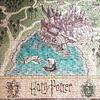Take a photo of a barcode or cover
I may come back to it but for now its not really what I was looking for (for a book thats supposed to be about the east it centers the west way too much)
informative
reflective
slow-paced
informative
slow-paced
informative
medium-paced
Pretty interesting. The best parts are the Ancient and Medieval sections, then it picks up again in the twentieth century. Loses focus a few times and talks about Europe too much but does convincingly argue for Central Asia as the centre of the world.
informative
slow-paced
Frankopan has a pretty strong pro-Israeli bias which is harmful and twists the history here. This book is also much stronger before it gets to the modern era, when it’s focus becomes the history of Western powers operating in the East.
informative
reflective
fast-paced
This is a difficult book to review. Frankopan is a renowned historian and a best selling author. It does not feel correct to be critical. So I'll caveat this by saying that this is just my opinion, to be weighed against that of others.
What I liked most is the sweeping view of world affairs that this book provides in 250 pages. It's hard to find such a concise and easy to read view of global politics and especially one concerning the silk roads. That was a tick for me.
What pained me was the over extensive use of references and quotations. There are about 750 references (approximately 3 per page) and maybe 20% of the book is in the form of quotations.
As a result, the book felt more like a literature review that was part 1 of a thesis and less a piece of analysis. The author impresses you with coverage, but not with insight. If you've been living under a rock, this book is great. However, the nuance is missing from the arguments and the perspective comes across as very western. The same trap that it was probably meant to avoid.
There are a few minor additional quibbles. Technology is clearly not Frankopan’s strong point; the cursory attempts to cover AI, blockchain etc fall flat and read like a school essay. There are also some grammatical errors or maybe the sentences were just to long for me to understand.
Overall, I can't say that I didn't like the book. But I expected a lot, lot more.
Don't get me wrong--this is an interesting book, and it is a good one. But I did not feel that it fully answered to its promise of telling a history of the world refocused on Central Asia and surrounding areas. It did not strike me as significantly refocused than any of the history courses I took in high school or as an undergraduate, and very much takes a Western European point of perspective.
To be fair, most of the history courses I took as an undergraduate focused on or at least touched on this part of the world. I recognize that this is not everyone's experience. Nevertheless, it is an engaging book that has the potential to be an enlightening read for someone whose academic background did not provide this basis.
To be fair, most of the history courses I took as an undergraduate focused on or at least touched on this part of the world. I recognize that this is not everyone's experience. Nevertheless, it is an engaging book that has the potential to be an enlightening read for someone whose academic background did not provide this basis.
informative
medium-paced
adventurous
challenging
informative
medium-paced
Firstly, as many other reviews mention, this book is not about the whole of the Silk Road. It focuses mainly on the Mediterranean and toward the end mostly Europe and the United States. That being said this is a great book. I went in with limited knowledge of the history of these regions and now I have a good overview to go into more specific books. If you are familiar with the history of these regions I recommend this book as it may connect ideas or cultures in a way you had not considered before and can act as a general refresher.
informative
reflective
medium-paced




